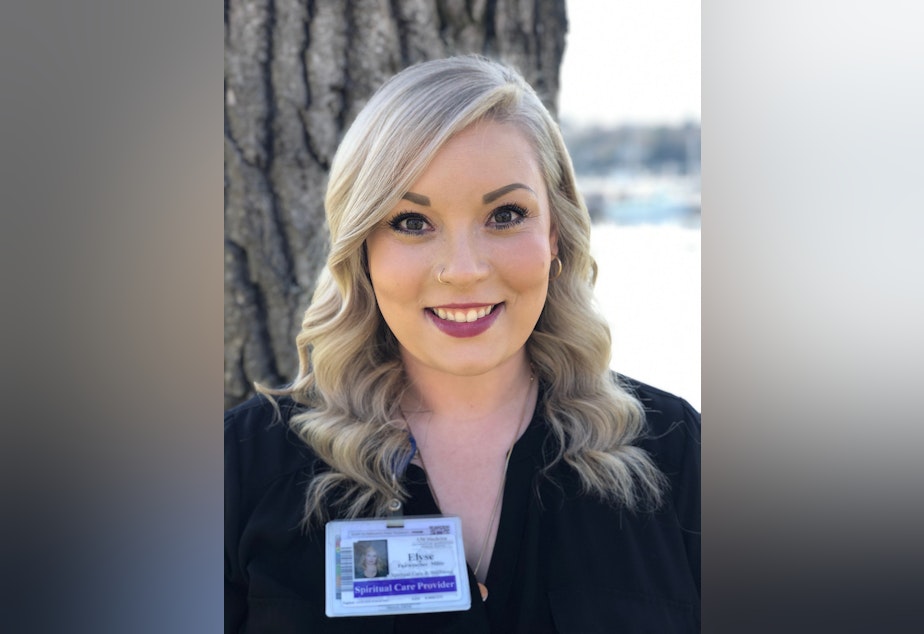I provide spiritual care at a Seattle hospital. Here's what that means during the coronavirus pandemic

Voices of the Pandemic features people in the Seattle area who are on the front lines of the coronavirus outbreak.
Elyse Fairweather is a spiritual care provider at University of Washington Medical Center. Part of her job is to provide end of life support. Before the outbreak, her role often involved being a calming presence in the room. That’s all changed.
If I'm talking with a patient who's in the Covid ICU, there's a lot that goes into it. I need to make sure that the nurse is going to be physically in the room to set up the phone, trying to bundle the visit with something that the nurse is already doing in the room.
And then the conversation itself, although the patient is not able to participate verbally, I think it's important that I'm still being that reassuring presence for them.
Oftentimes, I'll call and introduce who I am. If I've spoken with family, and they have a message that they'd like me to share, I'll usually start with that.
I’ll say, ‘I've been talking with your wife or your children, and they want you to know how much they love you and how much even though they can't physically be here, they're with you in spirit’. And then if the request is for prayer, then I'll just let that patient know. ‘They asked me to pray for you as well, so I'm going to pray for…’ and then tell them peace or comfort.
Sponsored
I close out the conversation, or the phone call visit, letting them know that that they are just so loved, and that everyone who is coming into their room is there to help them heal and to help them feel less alone, and that I'll continue to support their family, so they don't have to worry about that, and I'll be checking in with them again.
For a lot of the families that can't be here, there are some themes that kind of emerge in the conversations that I'm having.
One of the themes would be, if my loved one were here, this is what we'd be doing. If my loved one were here, this would be the rhythm of our day, and kind of finding the joy in the history that they've had together and also lamenting the fact their loved one is not here.
The other more obvious one would just be that there's so much to lament, there's so much grief when you're thinking about a loved one who's in the ICU or who is nearing the end of their life, potentially. And then sort of to add insult to injury, so to speak, not being able to be physically present. And so I think kind of living in tension of understanding that this is where we are and also where we are is really, really painful.
It is a huge burden of grief. Being in this supportive role, holding space for others to grieve, it certainly gets heavy sometimes, that burden. I've noticed that what’s helpful for me is that drive home, I live in a really lovely neighborhood, and it's really beautiful with all the signs of spring that are still present. So having that kind of mindful driving, and just noticing that constant, that nature is still here and still beautiful.
Sponsored
Then I also have a distinct practice that I started a while ago, which is kind of this physical shedding of the weight that I've been carrying around in the hospital throughout the day, so taking off my shoes outside of our home, so I'm not physically tracking anything into our home from the hospital, changing out of my work clothes into my home clothes.
And I think mentally it's really important to make that shift from being in this place where I'm carrying the grief of so many people to 'Now I can set that down. Now I can give my mind, and my spirit, and my body a chance to rest and regenerate.
Producer Alec Cowan composed music for this story.




